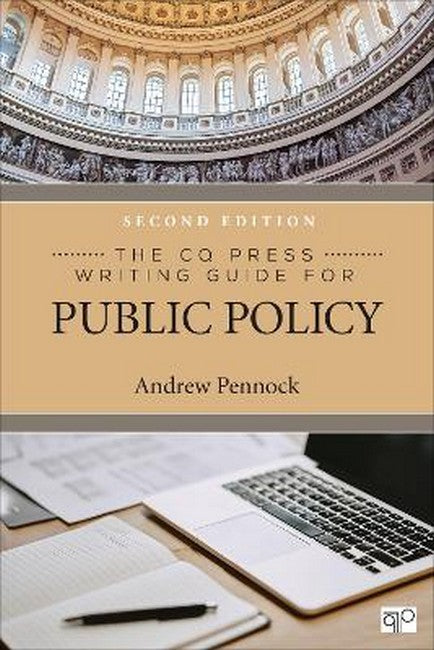Andy Pennock is an assistant professor at the Batten School of Leadership and Public Policy at the University of Virginia. He teaches writing in his courses on leadership, policy analysis, political institutions, and Virginia politics and policy. Prior to joining the Batten School, he taught at Brown University where he was the Director of Graduate Studies and the Director of the Applied Social, Economic, & Regulatory Analysis (ASERA) Group which partnered with government institutions, non-profit organizations, and other entities to provide technical expertise, policy analysis, and program evaluation. A seasoned instructor, Professor Pennock won multiple teaching awards during his time at Brown and UNC-Chapel Hill. Before completing his PhD in Political Science at UNC, Professor Pennock was a professional, non-partisan committee staffer at the North Carolina General Assembly. He has continued his applied work through consulting with the Governor of Virginia, the United States Centers for Disease Control, the Rhode Island legislature, local school boards, and Serve Rhode Island, Rhode Island's AmeriCorp home. Professor Pennock's academic research examines public policy in the global economy as well as the scholarship of teaching and learning. His work has been published in Perspectives on Politics, Economics & Politics, and PS: Political Science & Politics. Outside of Batten, he is the father of four small boys who wrestle with him all the time. He and his wife, Charity, love to cook, read, garden, travel, and have good conversations with people whenever they can.
Request Academic Copy
Please copy the ISBN for submitting review copy form
Description
Part 1: Introduction Chapter 1: Audiences and Audience-Centered Writing in Public Policy Part 2: The Skills of Policy Writing Chapter 2: Generating and Organizing Your Argument Chapter 3: Improving Your Writing: Sentences and Words Chapter 4: Writing Well: Paragraphs and Sections Chapter 5: Visually Communicating: On Creating and Writing About Tables Chapter 6: Visually Communicating: On Creating and Writing About Graphs and Other Figures Chapter 7: Pulling It All Together: Creating Professional-Quality Work Part 3: Policy Genres and Their Purposes Chapter 8: The Issue Brief Chapter 9: Policy History Chapter 10: The Decision Memo Chapter 11: Op-Eds Chapter 12: Legislative Testimony and Public Comment: Writing to Persuade the Government Chapter 13: Writing for Public Speaking Chapter 14: Writing for Nontraditional Formats: Email and Social Media Index
"Effective writing is widely recognized as a critical skill for public policy practitioners, yet the nuances of how to write for public policy audiences specifically are rarely made explicit to our students. This concise and beautifully written text provides a much-needed resource for students and practitioners of public policy to learn and practice the critical skills of writing for public policy audiences. The second edition includes new content on writing for public speaking. Enlivened with timely examples and hands-on exercises, The CQ Press Writing Guide for Public Policy is a treasure trove of useful and practical wisdom. -- Elisabeth Gerber "At the heart of policy analysis is giving advice about public issues, and the key to persuasive advice is clear and credible communication. In the CQ Press Writing Guide for Public Policy, Andrew Pennock draws on his years of experience as a professor, committee staffer, and policy consultant to impart useful, practical lessons on how to write more effective issue briefs, legislative testimony, memos, policy histories and op-eds. Pennock provides potent insights into how to create first drafts, how to sharpen prose, how to communicate about complicated tables and figures, and how to write for nontraditional formats such as email and social media. This terrific book presents dozens of concrete tips and step-by-step instructions that should be required reading for all student in public affairs undergraduate and graduate-level programs." -- Eric M. Patashnik "Among the many skills of an effective policy analyst, logical thinking expressed in clear writing is the most essential. My guess is that most teachers of policy analysis promote clear writing primarily through editing rather than instruction. This book is an excellent resource for shifting the balance more toward instruction. It combines practical coaching on the mechanics of clear writing with useful guidance on how to do it effectively in the variety of contexts in which analysts offer their advice. Whether in policy analysis, professional development, or workshop courses, public affairs students will benefit from using this book." -- David L. Weimer "Developing audience-centered writing skills is a core competency in our public health school curriculum. Andrew Pennock's book helped me as an instructor to refine the writing assignments used in our graduate-level food and nutrition policy course. The checklists he includes for each type of policy output makes it easy to develop clear rubrics for assessment. Beyond the classroom, I direct my mentees and colleagues to the first sections of the book as a practical primer on clear and accessible writing for any audience." -- Rebecca Heidkamp

